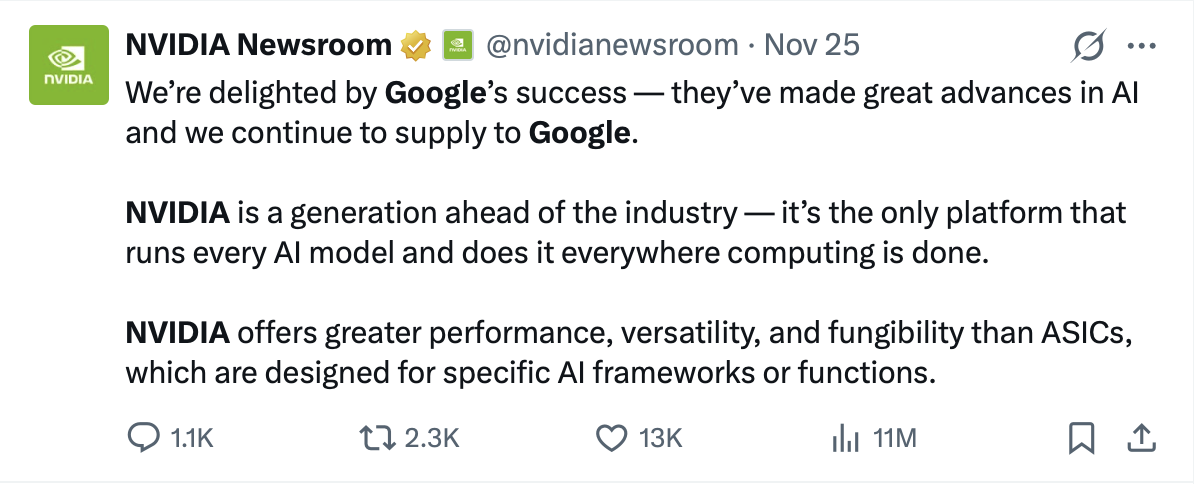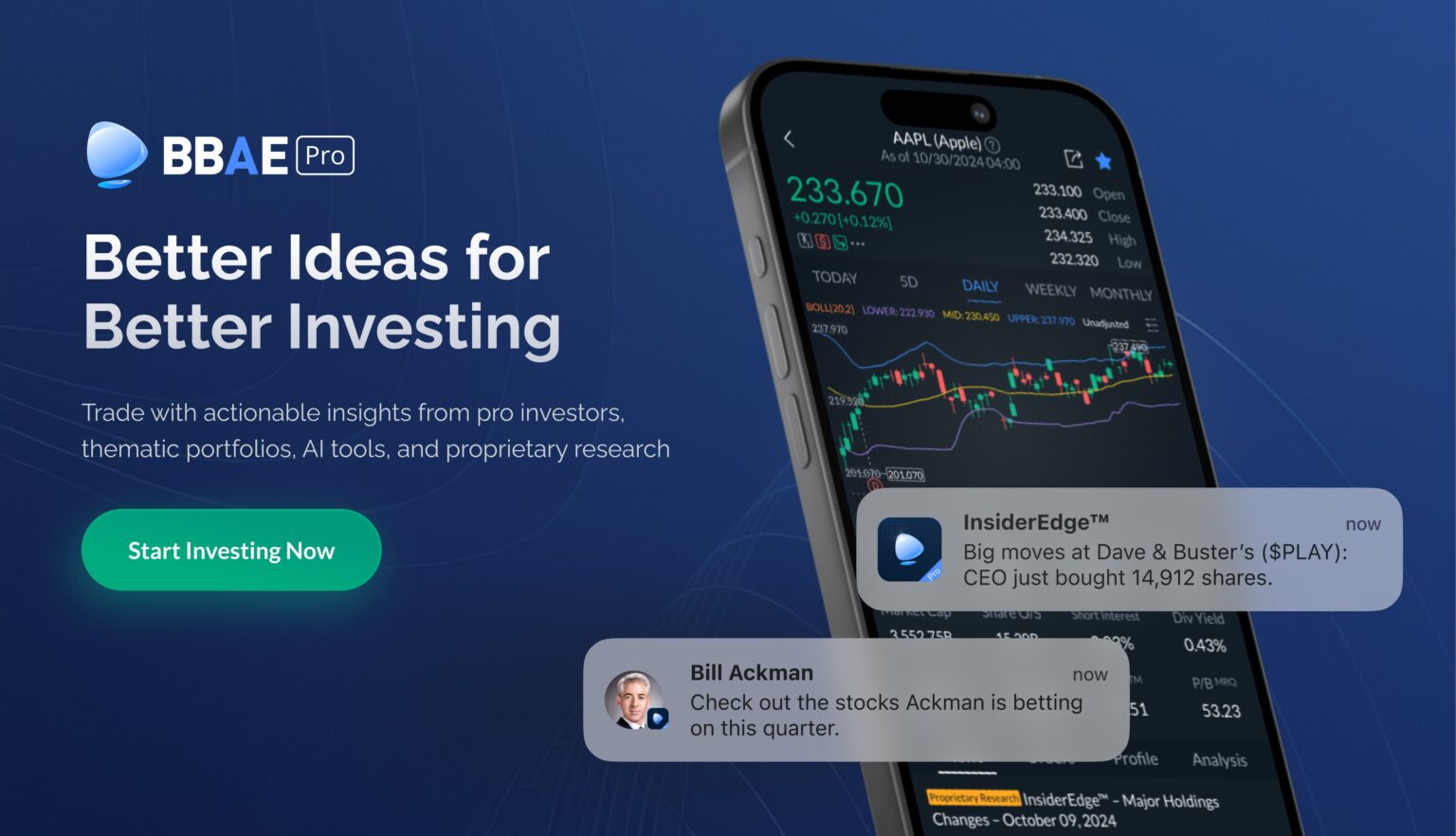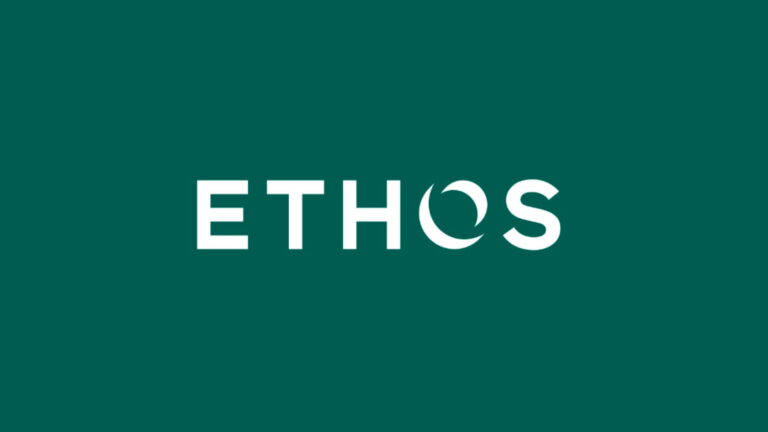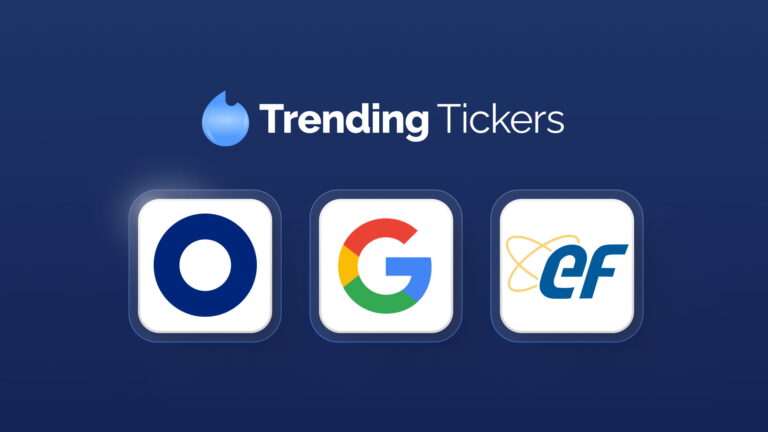Google–Meta TPU Talks: What It Means for Nvidia and the Market
Recent news that Meta, the parent of Facebook, is considering using Google’s custom AI chips has stirred up the tech investing world. This week, Reuters reported that Google is in talks to supply its Tensor Processing Units, or TPUs, to Meta’s data centers. These are specialized chips developed specifically for artificial intelligence tasks. One of the most recent designs is known as the Ironwood TPU, which represents Google’s latest generation of custom AI hardware.
Google has relied on TPUs internally for years, but now it is exploring offering them to outside partners. If Meta adopts them, these chips would compete directly with Nvidia’s GPUs and could challenge Nvidia’s dominant position in AI hardware. A shift of this kind could reshape how AI infrastructure is supplied and might open new opportunities for companies such as Broadcom, which manufactures Google’s TPUs. Understanding this move is important for investors, since it may mark the beginning of a more competitive and diversified AI chip ecosystem.
What’s Happening: Google and Meta in AI Chip Talks
Early indications suggest Meta may begin renting access to Google’s Cloud TPUs in 2026 and could potentially buy the chips outright in 2027 if the partnership progresses well.
Google’s TPUs are custom ASICs, or application specific integrated circuits, designed to accelerate AI workloads such as machine learning. Nvidia’s GPUs, on the other hand, have long been the standard for training and running AI models. If Meta adopts TPUs, it would be the company’s biggest shift away from relying solely on Nvidia.
What makes this important is Nvidia’s dominance. Its GPUs currently power most large-scale AI models across major tech companies. By considering Google’s alternative chips, Meta could weaken what has essentially been Nvidia’s near monopoly in high-end AI hardware. The rivalry between Google and Nvidia is now becoming more visible, and Google clearly wants to present its TPUs as a credible alternative. This could create a new revenue stream for Google while giving Meta a second strategic source of advanced processors.
Why It Matters: A Challenge to Nvidia’s Dominance
Nvidia has been the clear leader in AI hardware. Its chips have played such an essential role in the AI boom that the company’s profits and stock price soared over the past year, making it briefly one of the most valuable companies in the world. Nvidia has faced very little true competition at the high end.
The possibility of a Google–Meta chip deal signaled the emergence of a serious challenger. Investors viewed it as a sign that Nvidia’s dominance could be tested, and Nvidia’s stock fell around three percent on the day the talks surfaced. The concern is straightforward: if Google’s TPUs gain adoption, Nvidia may see reduced demand from key customers going forward.
Nvidia quickly responded on X, congratulating Google on its progress while also emphasizing its own strengths. The company stated that it remains a generation ahead of the industry and is still the only platform capable of running every AI model across all types of computing environments. Nvidia also pointed out that its chips are versatile and can handle a wide range of uses, whereas ASIC-based solutions like TPUs are designed for more specific frameworks.
In simpler terms, Nvidia wanted to deliver a clear message to investors and customers: it remains the most flexible and advanced option in AI hardware, even as new competitors emerge.

Broadcom: The Quiet Beneficiary
A key angle in this story is the role of Broadcom, a semiconductor company that is not always top of mind when discussing AI chips. Yet it may be positioned to benefit more than anyone else. Jim Cramer noted on X that Broadcom could end up as the biggest winner in this situation because it is likely the company Meta would contract with if the deal goes ahead.

The reason is straightforward. Google designs its TPUs, but it relies on partners like Broadcom to manufacture them, including the most recent TPU v6 Ironwood design. Broadcom is not just a supplier. Its CEO, Hock Tan, has been a member of Meta’s board since early 2024. That connection hints at a close working relationship, especially if Meta decides to place large TPU orders.
Broadcom’s role shows how the AI race is not only about who designs the chips but also about who builds them. In major tech partnerships, the manufacturer can sometimes benefit the most, even while staying largely out of the headlines.
Key Takeaways for Investors
AI chip competition is accelerating. Nvidia’s GPUs have long been the default option for artificial intelligence, but Google’s TPUs and other alternatives are beginning to challenge that position. Major cloud providers are developing their own hardware strategies as they try to capture parts of a market Nvidia has dominated for years. The trend could gradually reduce Nvidia’s control, although Nvidia still maintains major advantages in software and flexibility.
Nvidia still holds strong cards. Despite the headlines, Nvidia remains technologically ahead in many areas and continues to benefit from its massive software ecosystem. The CUDA platform, along with years of developer tools, makes switching away from Nvidia difficult. That is why demand for Nvidia’s products remains high, and the market could still be large enough to support multiple winners.
The Google and Meta partnership could reshape chip supply. If Google succeeds in selling TPUs to Meta at scale, it would validate years of internal chip development and potentially open a new revenue path. Even capturing a modest share of Nvidia’s market could represent tens of billions of dollars over time. For Meta, securing another supplier would help meet growing AI demand and reduce dependence on a single source.
Bottom line: The Google and Meta chip talks suggest that the AI hardware market may be evolving from a single dominant provider to a broader, more competitive ecosystem. Nvidia remains a leader but now faces visible competition. Google is moving to commercialize its AI technology, Meta is seeking supply diversification, and Broadcom stands to benefit as a manufacturer. For investors, the message is clear: watch the full ecosystem, not only the names in the spotlight.
This article is for informational purposes only and is not investment advice or a solicitation to buy or sell securities. The content is based on publicly available information and reflects the author’s opinions as of the publication date, which may change without notice. All investments carry inherent risks, including the potential loss of principal, and past performance is not indicative of future results. Readers should conduct their own research or consult a financial advisor before making investment decisions. BBAE holds no position in the securities mentioned, nor are they compensated by the companies mentioned.














